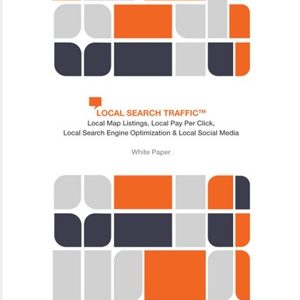
Google Assistant. Siri. Alexa. Cortana.
You have your choice of high-quality voice assistants today, and they can all do some pretty amazing things.
One of those things is to help users find answers to questions; basically, whatever someone would normally turn to a search engine for, voice assistants can find the resource and read it aloud.
Today, it’s nothing new to say that voice search presents phenomenal SEO opportunities for businesses.
After all, if those popular voice assistants are reading off the answers to people’s questions, then there’s a chance that they could read your website’s content as some of those answers!
And the numbers hold this up, too:
- In the United States, 40.2% of people use voice search.
- 71% of people prefer using voice search to physically typing out a search online
- According to Google, 27% of the global online population uses voice search on mobile.
- 58% of people have used voice search to find information about local businesses
So, voice search is a real institution – and it isn’t going anywhere.
Hold your horses, though, because your website won’t show up in voice search answers just because it has content.
There are elements you have to understand about optimizing for voice search – before you can start putting it to use for your SEO strategy.
What Is Voice Search?
To start off simply, let’s answer the basic question of what voice search even is.
Voice search allows people to use voice commands with their smart devices to retrieve online resources.
It works much like a computer or smartphone, except that you’re using your voice to search instead of typing things in.
The smart device uses artificial intelligence to process the language, consult the respective search engine, and return the best result to the user.
Voice search is used for all kinds of inquiries, from straight-up questions and answers to driving directions to jokes.
And voice search is getting better all the time. In Google’s case, that’s due in huge part to the search engine’s use of natural language processing.
Natural language processing (or NLP) is what allows Google, a machine, not only to read but also to interpret search inquiries as a human would.
Through NLP, Google understands searches semantically, meaning it increasingly understands what was meant by a search, rather than just what was said.
You can see the benefits to people who are using voice search to access internet resources using their voice assistant, but what about the benefits to businesses?
How Can Voice Search Benefit Your SEO?
If you’re just learning what voice search is, the wheels may be starting to turn regarding how it can help your business’s SEO strategy.
But let’s discuss the reality of it, in case things are still a bit murky.
For every voice search, the voice assistant will read a result aloud.
Now, when you’re looking up directions, the voice assistant will just give you what you need.
But when you have a genuine inquiry – a question about who someone is, how something works, or why something is the case – your voice assistant will turn to organic content for the answer.
This is your chance to shine because the content the voice assistant reads could be your own!
The answer is usually what would be the featured snippet on a regular search engine results page (SERP).
That means whatever content is on top gets the extra reward of being read to users as the most authoritative resource to answer that question.
And, since SEO is all about establishing your business as a trustworthy authority in your particular market niche, then showing up in someone’s voice search should definitely be a goal of yours if you’re looking to grow through SEO!
What it all comes down to, then, is optimizing for voice search.
There are a few points to consider here; There isn’t just one thing you have to do to show up in voice searches.
With that, let’s get into how to optimize your business’s online presence for voice search.
Two Ways You Can Target Voice Search
There are two overarching ways in which I think about optimizing for voice search: getting your content right, and getting your local business’s NAP information right.
If you want your website to show up in voice search as an organic result, or if you want your business’s NAP information to appear in the map pack, you have to know the personas who are searching for things, as well as what they want.
Let’s cover what each of those points really means.
Optimizing Organic Content
So, you want your site content to show up for voice questions such as “easiest roasted potatoes recipe,” “how is photogrammetry used in car crashes,” or “why do Dalmatians have spots?”
The general way to think about this is to have your content directly address what people want – the actual intent of the question.
What does that mean?
Take the Dalmatian question.
If you run a dog blog, do research on that keyword-based question, and want to appear as a voice search answer when people search that, here’s what you do.
Make the question the title of a blog post.
Google assigns a lot of organic search weight to the H1, or title, of a page.
In the first paragraph of that post, write the direct answer in a concise yet comprehensive way. Another sentence after that to explain further couldn’t hurt, either.
Then, write the rest of the post, fill in all the details, and add rich elements such as images and infographics.
Presenting the intro as the answer the assistant will read can go a long way to appearing as a voice answer.
If you want to be seen as the most authoritative answer on the internet, though, and you want the voice assistant to present your answer as the best one, there are also other things you can do.
For example, you may want to add blog post structured data to your post to help Google understand your content.
Structured data is also particularly helpful with products and recipes. That markup will help Google to understand the finer points of the page you want to promote, and your content could show up in a voice search.
Always remember the fact that people tend to voice search using longer, more natural phrases. For that reason, you should research and use those longer-tail keywords in your content.
Based on how specific those keywords get, you should be able to discover who the persona is for this content. Who are they, and what are they after?
Knowing your audience will help you to craft the content, and that little extra thought could make the difference in attaining that coveted voice search answer.
Optimizing Local Business Information
Then there are all the local searchers out there who want to find a place like yours in their area or know who you are and want to learn more about you.
In those cases, you want to show up in the local map pack when people voice search “pizza places near me.”
You also want the voice assistant to give correct information when people inquire about “X company’s business hours” or “Y business’s address.”
There are several things to say here.
One is that showing up in local map packs, whether it’s through voice or traditional search, is all about optimizing your Google Business Profile to the max.
That means including hours, addresses, photos, services – and reviews, reviews, reviews!
Soliciting good reviews from happy customers is one surefire way to succeed as a local business.
It helps people to know they’re going to have a good experience with your company. It also shows Google that this is a business that people find useful, so it will keep showing it to searchers.
Also, since mobile devices are where voice searches occur, be sure to optimize the mobile version of your website so that anyone wanting to learn more has a good experience on your site.
Now Is The Time To Consider Voice Search
Voice search isn’t new technology, but as such a convenient way to get answers to questions, its popularity is rising – and if you haven’t been optimizing for it, now is the time.
Now, none of this is to say that it’s easy to show up in voice searches.
Many of your competitors are probably working toward the same thing.
But if you laser-focus on your choice of keywords, their intent, and your perfect user persona, you give your business the best chance to showcase itself through booming organic search technology.
More resources:
- Voice Search Optimization At Scale: A Guide For Enterprise Marketers
- Tips For Leveraging The Power Of Voice Search Optimization
- How Search Engines Work
Featured Image: Production Perig/Shutterstock



